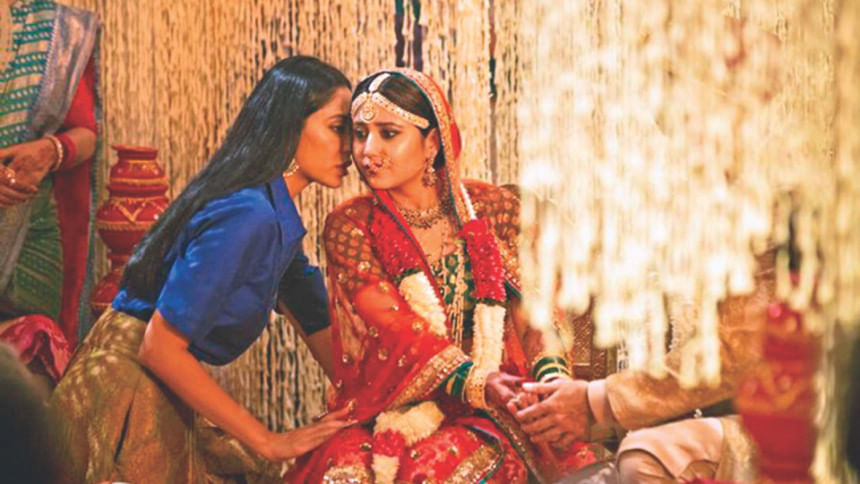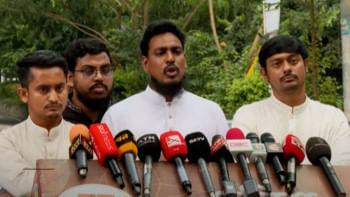Made in Heaven: As real and entertaining as any Big Fat Indian Wedding

“All happy families are alike; each unhappy family is unhappy in its own way. If you look for perfection, you’ll never be content.” Place Anna Karenina’s famous first line into the Indian social context, and you have Zoya Akhtar and Reema Kagti’s Made in Heaven, an Amazon Prime TV web series that launched on March 8 earlier this year.
Best friends Tara and Karan are just getting off the ground with Made in Heaven, a wedding planning company in upper middle-class Delhi. Each of the nine episodes deals with a new wedding and a fresh brew of snafus because, as Tolstoy so aptly put it, every family is weird in its own way. If one set of in-laws want their daughter-in-law to be investigated, another Wharton graduate bride is willing to marry a tree to ward off bad omens from her fiancé. A father of the bride bans orange flowers because it’s the colour of his opposition political party. And a poor, underage worker gets sexually harassed at the wedding of a powerful “liberal” family. In trying to put out these fires, the Made in Heaven team go beyond the boundaries of official wedding planning duties even as their personal lives unravel in the background.
The web-series more than just panders to our taste for glamour and laughs, though. In true Zoya and Reema fashion, as is seen in their previous offerings—be it Honeymoon Travels Private Ltd., Zindagi Na Milegi Dobara, or Dil Dhadakne Do—the show uses what is commonly said and done to draw the audience in. But each glitch, each plot twist then raises moral and ideological debates that ours, of all societies, needs to address: LGBT rights, class divides, privacy, polygamy, dowry culture, and the teetering balance between family and individuality, intellect and religious superstition.
The show handles these questions in all their complexity, managing for the most part to not be preachy. What little moral commentary is offered by Kabir Basrai—the wedding videographer who narrates at the end of every episode—is balanced out by brilliantly fleshed out characters who seldom seem to know right from wrong. Each character (the permanent ones more so), is an unpredictable universe of his/her own, complete with demons, backstory, and ambiguous moral compasses.
Gully Boy and Luck by Chance notwithstanding, Zoya Akhtar is frequently blamed for writing stories about Rich People Problems. But while the characters in both Zindagi and Dil Dhadakne Do happen to belong to an elite class, the problems they face have more to do with the human condition in general: battling inner fears, braving social conventions to take the right choice, and supporting one’s family while also respecting their personal space. Instead of portraying just the struggles of the rich, the stories convey that even those who have it all can be flawed and in pain. In fact, being placed in a privileged class takes matters of socioeconomic struggles out of the equation for these characters, leaving them free to navigate the other issues dealt with in both movies. Made in Heaven takes a slightly different route: it undoes these place holders and puts the classes into contact with each other.
Some of the characters try to make their way through the class divide, while others are flung hard against it. The subtlest differences in haircut or in the movement of a wrist mark each character’s place in the socioeconomic ladder. The result of the juxtaposition is that each life, each struggle, feels more real to the audience, if only by virtue of contrast. You feel just as sincerely for newly wealthy Tara as you do for Jaspreet, who goes by Jazz while helping out at the lavish weddings, before returning to her dingy housing project home, her broke family, and her drug addict younger brother. The scene where Jazz enters a hotel room for the first time, awestruck at the bath robes and free cosmetics, and her later fiasco with a company credit card are two of the most touching instances in the entire series. You’re forced to recognise, through these episodes, both the similarities and the differences in all that ails the rich and the poor in the subcontinent.
Perhaps the multiplicity is achieved because there are four brains behind the project: directors Zoya Akhtar, Nitya Mehra, Prashant Nair, and Alankrita Shrivastava. But an equally talented cast of actors brings their visions to life, be it Kalki Koechlin’s rendition of the troubled, grieving, self-important heiress Faiza, Shivani Raghuvanshi’s jittery yet and naively confident Jazz, or Jim Sarbh’s suave, manipulative Adil. Arjun Mathur’s grief as his character Karan fights family and state for the legalisation of gay rights is heart-wrenching to watch. Unfortunately, Sobhita Dhulipala’s performance as Tara pales in comparison, coming off as a tad mechanic.
Kabir’s monologue towards the end of the pilot mostly perfectly sums up the point of the series. “They say marriages are made in heaven,” he narrates while shooting a stunning wedding ceremony. “But on the ground, the reality is slightly different.” The show thus uses a space—that of the Big Fat Indian Wedding—meant to be perfect and beautiful, to shed light on all that is not, in the subcontinent’s society. But you get the sense that it isn’t just about helping the audience relate to the fiascos. It’s about pushing them, using their favourite arsenal of glamour, gossip and drama, to dare to be better.
Sarah Anjum Bari can be reached at

 For all latest news, follow The Daily Star's Google News channel.
For all latest news, follow The Daily Star's Google News channel. 



Comments